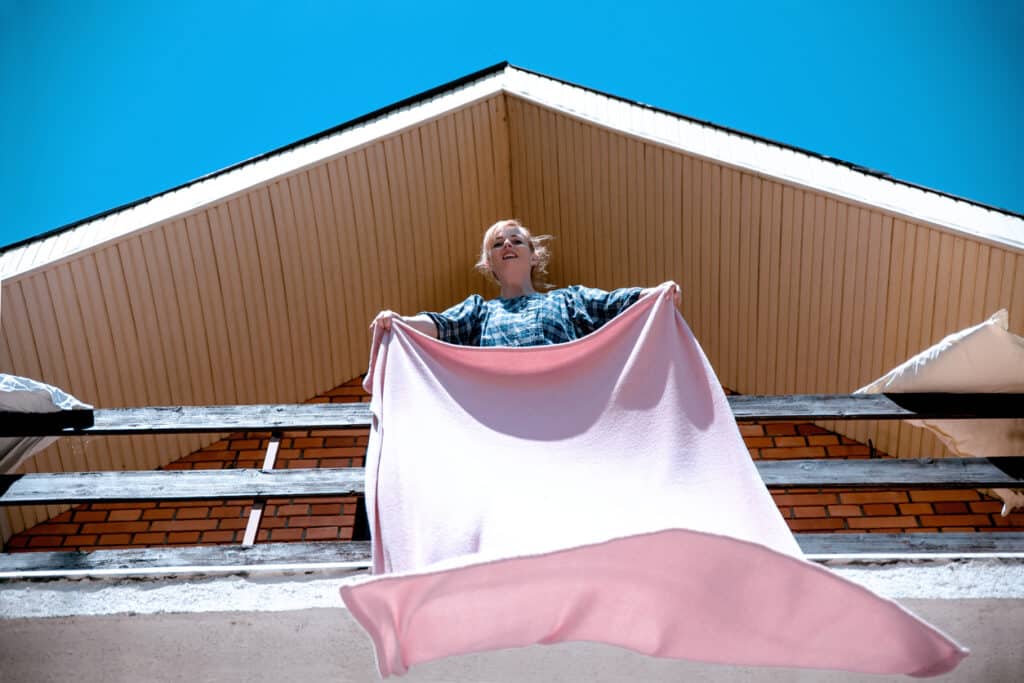We all know that we should avoid staying in damp clothes for too long. But did you know that sleeping in damp sheets can be just as bad? It may not seem like a big deal, but it could be contributing to your chronic pain and fatigue!

Why do people like to sleep on damp sheets?
We all love that amazing feeling of climbing into bed after a hot shower. It’s the only time our feet are warm, and there’s nothing better than curling up under your soft duvet with wet hair!
For some people, though, this is not an occasional indulgence. Instead, they actually choose to go to sleep on damp sheets in order to keep cool throughout the night.
The trouble is, it’s not actually great for your long term health.
Are there any benefits to placing damp sheets on the bed?
There is a housekeeping hack about putting damp sheets on the bed. It is said that if you put your sheet on your mattress while it is still slightly damp, it will dry flat without wrinkles. This does away with needing to iron your sheet. However, it’s important to let the sheet dry out completely before you actually try to sleep on it.
What’s the problem with sleeping in damp sheets?
If you live in an area where humidity levels are so high that you usually wake up with damp sheets, you will want to know why it’s an issue.
Skin complaints
Exposure to humidity can cause problems for your skin, hair and nails. If you suffer from dry skin or itchy skin, sleeping in damp sheets could make this worse.
Read also: Do silk sheets make you sweat?
Reduces sleep quality
It also affects the quality of your sleep.
Mold growth
Dampness can also cause mold to grow, and this can be a health hazard. Mould spores can cause respiratory problems, and they are especially dangerous for people with asthma or allergies.
Bed bugs and pests
Damp sheets can attract bed bugs and other pests, which can then infest your bed.
How does damp bedding harm your health?
When your sheets are damp, you’ll notice that it feels a little colder than usual. It may not seem like a big deal, but this is because the dampness is drawing heat from your body. Over time, this can make you feel tired and fatigued – even during the day!
In addition, damp sheets can also be a breeding ground for bacteria and mold. This can cause respiratory problems and skin irritation.
How can you solve the problem of sleeping in damp sheets?
If you are finding it difficult to get rid of the dampness in your bedroom, there are a few things you can do:
- Invest in a good quality bed linen set that wicks away moisture
- Hang your sheets to dry after washing them
- Buy a dehumidifier to reduce the humidity levels in the room
- Use a fan to circulate air
- Invest in an air conditioning unit
Also read our full guide on why your bed feels damp at night and how to solve it.
Conclusion: Sleeping in damp sheets – is it a bad idea?
Sleeping in damp sheets can have some serious health consequences, so it’s important to take steps to stay dry. By following these steps, it should be possible to keep your sheets dry and make sure you get a good night’s sleep!
